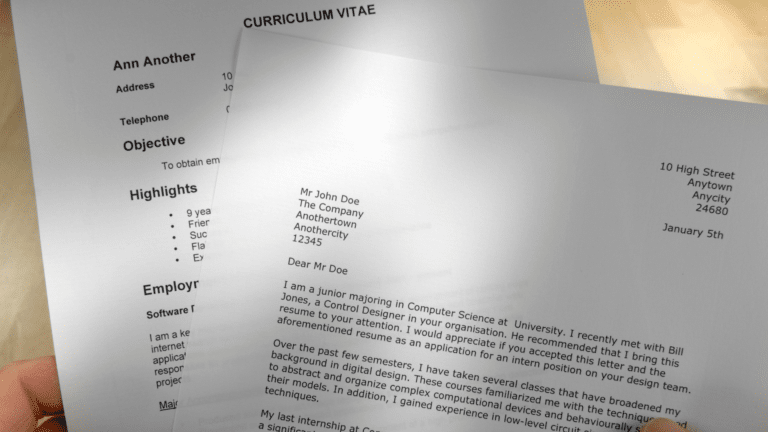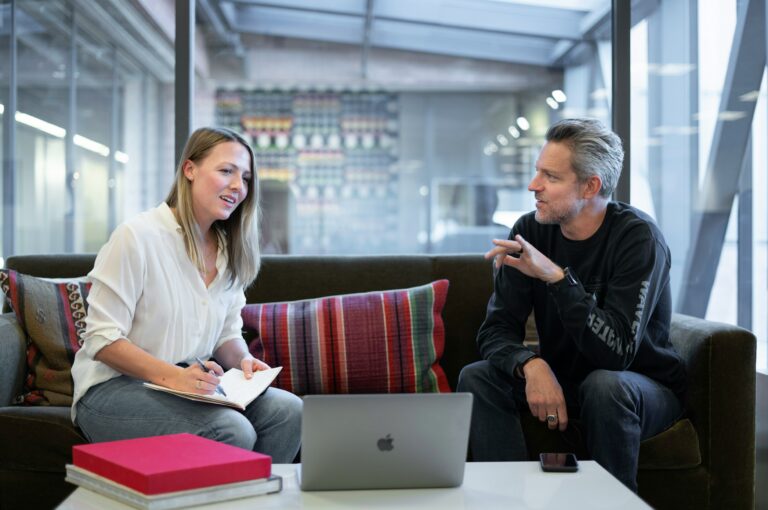Interview questions are rarely easy, but those you must organize in a specific order are typically even more difficult. These include STAR interview questions, sometimes referred to as behavioral interview questions.
Still, although they can be tricky, you can prepare your answers using the STAR method and ace your interview.
In this article, we’ll explain what the STAR method is and how to prepare your answers using it. Moreover, we’ll list 25 common STAR interview questions, and you’ll have a chance to make the most of our sample answers.
Key Takeaways
- There are 25 common STAR interview questions in this article. If you think you may encounter some of them in your next interview, write them down and prepare answers.
- Tips on how to prepare for the behavioral interview questions include thinking about a specific situation, reviewing the job description, and simply practicing.
- Adjusting the five sample STAR interview questions and answers to your own examples can help you organize your responses in a logical order and cover everything that needs to be mentioned.
- The article offers 5 sample STAR interview questions and answers that you can adjust to your needs.
- The letters in the acronym STAR stand for situation, task, action, and result.
What is the STAR Method?
The STAR method is a simple technique that can help you answer situational and behavioral interview questions a recruiter may ask you. It’s comprised of four steps that instruct you to present your answer as a story.
The acronym stands for:
- S—Situation. Describe the time, place, and circumstances of the event.
- T—Task. Explain the goal or the responsibility you had in front of you. Briefly describe what you needed to do.
- A—Action. In more detail, tell recruiters how you tackled the challenge and found a solution. This part requires a thorough description of your course of action.
- R—Result. Describe the outcome of your action in one to two points. Remember to mention positive feedback from your employer or state what you learned from this experience.
Each of these steps is an instruction on how to handle behavioral interview questions. Such questions aim to assess your actions or reactions to situations or challenges in your workplace. The person asking you behavioral questions wants to examine your skills, knowledge, and personality.
While answering, you need to provide plausible, real-life examples and describe how you came to a successful resolution. Put yourself in the story’s center, even if you’re discussing a team effort.
The typical examples of behavioral interview questions are:
1. Tell me about a time when you convinced a client to renew the company’s service. How did you do it?
2. Give me an example of your favorite task. Can you describe it in detail?
Now, let’s look closely at a STAR method question and a sample answer.
STAR Method Answer Sample
Use these sample interview questions and answers as a STAR method cheat sheet and write them down.
The question: Tell me about a time you took on a leadership role. Why did you decide to do it?
Sample answer: While completing a final project at my previous job, we were already understaffed, and the work was piling up. My coworkers and I had to make a group effort to categorize all clients’ data and the services we provide.
When I saw that no one was willing to step in and take the lead, I decided to be the one who would delegate the duties.
My first step was to recognize the most complex data that needed to be sorted and pass that on to the most experienced staff members. Then, I assigned each team member the task of categorizing the data about clients they had the most knowledge about.
The team effort resulted in a successful project that would have otherwise taken much more time and energy. Our team leader was delighted with the outcome and praised me and everyone who participated in the assignment.
How to Prepare for Answering STAR Interview Questions
While preparing for the interview, during which you’ll have to answer STAR questions, you should consider a few things. Here are three expert tips you should remember when heading to your interview.
Think About Specific Situations & Write Them Down
You’ve likely encountered situations in which you had to handle a conflict, take the lead while dealing with a task with your coworkers, or achieve a challenging career goal. You may have come across these scenarios even if you have no work experience, as they’re common in university or school projects.
So, make sure to write down such experiences and try to draw out some questions that may arise from these particular stories. Ultimately, using this method will help you ace the interview, which in turn will get you closer to landing that dream job in no time.
Review the Job Description
Doing your homework does wonders. By homework, we mean exhaustive research of the job role and the required duties. For example, if you’re applying for a flight attendant position, think in terms of questions regarding situations in which you interacted with passengers and, based on your own stories, come up with an answer for each one.
Practice
It may seem cliche, but we advise you to stand in front of a mirror, ask yourself questions, and provide the answers to them. You should already have a written list of the behavioral inquiries you might come across, so prepare for some storytelling and answer each one using the STAR method.
However, you may wonder what the additional questions might be. Well, take a look at the ones listed below.
18 Common STAR Method Interview Questions
Down below are 18 STAR method interview questions the recruiter might ask you at the next interview. Let’s take a look.
- Have you ever faced a conflict with a coworker? How did you resolve the situation?
- Tell me about a time when you delegated a project effectively.
- Tell me about a time when you had too many things to do and were required to prioritize the tasks.
- Have you ever had to work under a tight deadline?
- Tell me about a mistake you have made at work and how you resolved it.
- How did you handle a situation when a team member did not complete their share of the work?
- Give me an example of a time when you and your team had opposing views on an issue. How did you persuade them to go with your decision?
- Tell me about a time when you were given the liberty to be creative with your work. Was it challenging, or did you enjoy it?
- Tell me about a time when you had to cope with ambiguity at work.
- Tell me about a situation where you had to take the initiative. What was the outcome?
- Give me an example of a time when you motivated others.
- Tell me about a time when you had to deal with a difficult client.
- Have you ever been in a disagreement with your supervisor? How did you handle that?
- Have you ever had to comply with a company policy that you did not agree with?
- Tell me about a time when you had to make a difficult decision and how you communicated it.
- Give me an example of a goal that you set that you were not able to achieve.
- Tell me about a time when you had to deliver bad news. How did you do it?
- Tell me about a situation when you persuaded someone to do something you wanted. How did you do it?
Sample Answers to STAR Interview Questions
Now, we’ve come to the part many may find most useful—providing sample answers to some of the most common STAR interview questions you may come across. If the recruiter asks a similar question, and you think you could modify some of these answers to craft the best reply, go ahead and do it.
Here they are.
#1. Tell me about a time when you performed well under enormous pressure.
This question is pervasive for jobs in fast-paced environments where you have to think quickly on your feet and be as resilient as possible.
Sample answer: While I was working at the call center for a small, low-cost airline, every day was exceptionally dynamic.
However, one day, we had a massive disruption because one airport closed. I kept receiving calls one after another, and each was very difficult to handle. I realized that the only solution to making it through the day successfully was to remain calm.
The panic in the office was apparent, so I sacrificed 15 minutes and went outside for a break. During this pause, I told myself the best course of action was to breathe and relax. I completed a short mindfulness technique and went back in.
My responses were quicker, and I found the best solution for the clients who didn’t know what to do because their flights were delayed or canceled.
As we left the office, I realized that most of those panicking during their calls had worse performance. On the other hand, my manager said that my behavior and work style that day were exemplary, as I didn’t let the stress get the best of me.
#2. Share an example of a time when you faced a difficult problem at work. How did you solve this problem?
We chose this answer because it’s remarkably versatile, so you can make changes to fit your example.
Sample answer: During my first year of working for a software service business, I didn’t have much experience, but I was trusted with the position of communicating with all our clients. One day, one of our most important clients called, utterly angry, and wanted to know why they couldn’t access the software service they were subscribed to.
As they threatened to terminate the contract, I realized I had to offer an immediate solution and pacify them.
I called them and arranged a meeting in person. After consulting with my supervisor, I apologized to the client and offered them a 10% discount in the hope they would stay with our company.
After I explained each part of the problem and showed what we would do so the issue wouldn’t arise again, they accepted the 10% discount and said they would stay with us.
This effort on my end led to a promotion, as our management got concerned about losing this important client.
#3. Describe a time you went above and beyond to achieve a goal.
If you get to this statement at the interview, the recruiter wants to assess whether or not you bring extra value to the company, even when that’s not asked of you. Here’s how to go about it using the STAR method.
Sample answer: I worked as a customer care representative for a company providing internet and telecommunication services to their clients.
One day, I solved the technical issue our customer had been having for quite some time, and they thanked me, even though they got disappointed at one point. I decided to make them feel welcome again by explaining how to use premium features.
Before leaving the office, I gave this client a call and asked if there was anything else I could assist them with. They said no, but I offered to improve their experience by explaining how to get the most out of our service.
Since the client was elderly, I asked if they knew how to use the service’s premium features. They said they didn’t, so I carefully explained each one. With this, the client could access all the HQ channels and use the streaming service included in the offer.
The next day, my manager came to the office and told me that the client I talked to had sent a thank-you letter stating their gratitude for receiving such top-notch care.
#4. Tell me about a time you worked well with a team.
You’ll likely get a STAR interview question about your team’s efforts during a job or internship interview. Here’s how to answer this.
Sample answer: When I worked as a teaching assistant at the university, we faced a pitfall when the software for grading and teaching material malfunctioned.
Our IT technicians weren’t available since this happened after hours, so we all agreed to split the work and fix it ourselves. My task was to manually collect the entire class’s grades and gather the materials from our separate database.
I passed the information to the coworker, who found a way to input each piece of data into the system until it was all back in place. Once I finished each bit, I helped them do the work, and we both submitted the numbers together. Lastly, our third coworker tested the system to check if all worked well.
The following day, the head of the department applauded our efforts and said that if we hadn’t done it ourselves, the entire workday would have been interrupted.
#5. Describe a situation where you quickly had to learn something or adapt.
The questions assessing your adaptability at the workplace are common, and most are best answered using the STAR method. Here’s one example.
Sample answer: I’d been working as a content writer for a company where we used one content management system for five years. While everyone was happy with it, our management decided to replace it with a more sophisticated one. Sadly, the software wasn’t very user-friendly.
I knew that the faster I learned how to use this program, the easier it would have been to resume my work and optimize it in the best possible way. Therefore, I took 2 hours each evening to explore the tool until I was ready to work with it in the office.
After some research and wandering through the software, I managed to get a hold of it. My team leader said they were impressed with how I quickly caught up with it and asked me if I could help pass the knowledge on to other team members.
Final Thoughts
Using the STAR method, you can organize your answers optimally to provide the best response at your job interview. This article offers 25 questions that can serve as ideas and five sample answers, giving you a better insight into what an interview with STAR questions looks like in practice.
The interviewer may ask some of them, so tailor them to your needs. Additionally, if you don’t know where to start, use our tips to start preparing.
Good luck!











